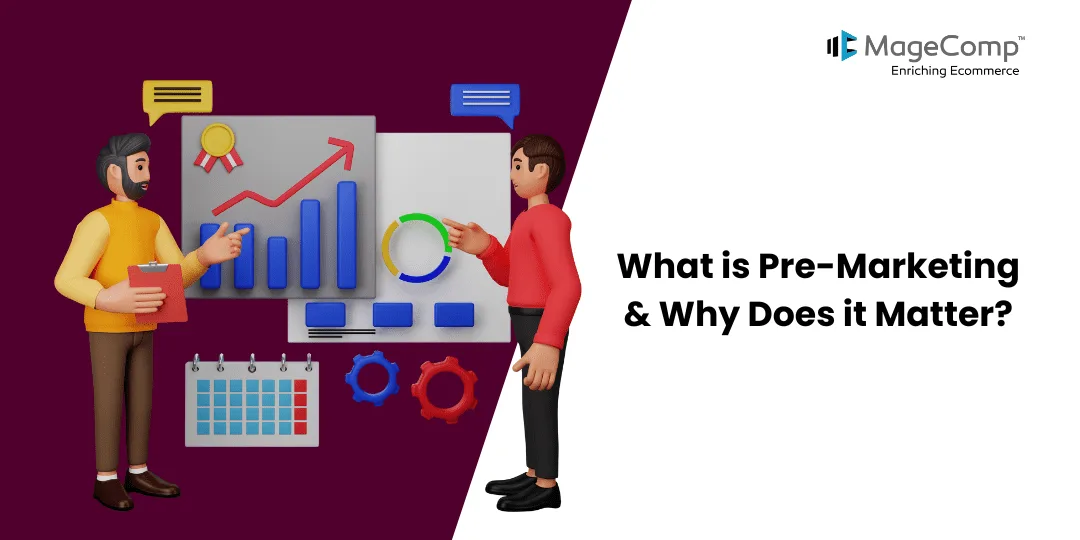Launching a new product or service is an exciting time. You’ve poured your heart and soul into its creation, and now you’re eager to unleash it on the world. But hold on a minute, there’s a crucial step many businesses overlook: pre-marketing.
Pre-marketing is the strategic groundwork you lay before any official launch. It’s the quiet hum of activity behind the scenes, building anticipation and ensuring your big reveal lands with a bang.
Think of it like this: you wouldn’t build a house without a solid foundation, would you? Pre-marketing is the foundation for your marketing campaign. It sets the stage for success and helps you avoid common pitfalls.
What is Pre-Marketing?
Pre-marketing, also known as pre-launch marketing, involves a series of activities designed to build anticipation and awareness about a product or service before it officially hits the market. The goal is to create a buzz, attract potential customers, and generate initial demand. This phase is crucial as it sets the stage for a successful launch by ensuring that the target audience is aware of and excited about the upcoming offering.
What Does Pre-Marketing Involve?
Here are some key activities:
- Target Audience Definition: Who is your ideal customer? Pre-marketing helps you understand their needs, wants, and pain points. This knowledge informs every aspect of your marketing strategy, from messaging to channel selection.
- Branding and Messaging: Develop a clear and consistent brand identity that resonates with your target audience. Craft compelling messaging that highlights your product or service’s unique value proposition.
- Content Creation: Start building a content library that educates, entertains, and engages your target audience. This could include blog posts, social media content, infographics, or even video teasers.
- Website Optimization: Ensure your website is user-friendly, informative, and optimized for search engines. This will be the first point of contact for many potential customers, so make a good first impression!
- Competitor Research: Analyze your competition to understand their strengths and weaknesses. Use this information to differentiate your product or service and carve out a unique space in the market.
Why Does Pre-Marketing Matter?
Pre-marketing matters for several key reasons that can make or break your product launch. Here’s a deeper dive into the benefits
Building Anticipation and Buzz
Imagine a movie shrouded in secrecy, with cryptic trailers hinting at an epic adventure. That’s the power of pre-marketing. By creating a sense of mystery and intrigue, you pique your audience’s interest and get them talking. This pre-launch buzz translates to excitement on launch day, leading to more people checking out your product.
The buzz generated during the pre-marketing phase can significantly impact the initial reception of the product. A well-executed campaign can create a sense of urgency and excitement, driving higher demand and sales upon launch. Positive word-of-mouth and social media buzz can further amplify this effect.
Valuable Customer Feedback
Pre-marketing isn’t a one-way street. By using surveys, focus groups, or social media engagement, you can gather valuable insights from potential customers. This feedback loop allows you to:
- Identify any product weaknesses: Is a certain feature confusing? Does the design resonate? Pre-marketing can expose areas for improvement before you commit to a full-scale launch.
- Refine your messaging: The way you talk about your product is crucial. Pre-marketing allows you to test different messaging approaches and see what resonates best with your target audience.
- Shape your launch strategy: Feedback can help you tailor your launch campaign to better address customer needs and expectations.
Building a Ready-Made Audience
Pre-marketing doesn’t happen in a vacuum. By creating engaging content and establishing a social media presence, you’re building a community of interested individuals. This “pre-qualified” audience is already familiar with your brand and excited about your product. Come launch day, you have a warm audience ready to convert, giving your sales a significant boost.
Pre-marketing helps create awareness and interest well before the launch, ensuring that the target audience knows about the product and eagerly anticipates its release. This early engagement can lead to a more receptive market when the product finally launches.
Mitigating Risk and Maximizing ROI
Think of pre-marketing as a test run. By dipping your toes in the water, you can identify potential issues early on. Imagine launching a complex product with a confusing user interface – not ideal! Pre-marketing allows you to iron out these wrinkles before launch, minimizing the risk of a flop and enhancing overall readiness.
A successful launch translates to a better return on your marketing investment (ROI). By generating buzz, building an audience beforehand, and refining your product based on customer feedback, you get more bang for your buck when you officially unveil your product or service. Pre-marketing helps you avoid costly mistakes and launch with confidence, maximizing the impact of your marketing efforts and driving sales.
Effective Pre-Marketing Strategies
Content Marketing
Creating valuable and relevant content is a cornerstone of pre-marketing. Blog posts, videos, infographics, and eBooks can educate the audience about the product and its benefits. Sharing this content across various channels increases visibility and engagement.
Social Media Campaigns
Social media platforms offer a powerful way to connect with potential customers. Running targeted campaigns, hosting live sessions, and leveraging user-generated content can create a sense of community and excitement around the product.
Email Marketing
Email remains one of the most effective channels for pre-marketing. Sending personalized and informative emails to a curated list of subscribers keeps them engaged and informed about the upcoming launch. Exclusive offers and early access invitations can further incentivize engagement.
Influencer Collaborations
Partnering with influencers who have a strong following in the target market can amplify pre-marketing efforts. Their endorsements and authentic reviews can sway potential customers and build credibility for the product.
Interactive Experiences
Hosting webinars, virtual events, and interactive demos allows potential customers to experience the product firsthand. These experiences provide a platform for addressing questions, gathering feedback, and building anticipation.
Teaser Campaigns
Teasers and countdowns create a sense of anticipation and urgency. Short videos, cryptic messages, and sneak peeks build curiosity and encourage the audience to stay tuned for the official launch.
Conclusion
Pre-marketing is a critical phase in the product lifecycle that sets the foundation for a successful launch. By building awareness, generating interest, and engaging with the target audience, businesses can create a buzz that drives demand and ensures a positive reception. Understanding the importance of pre-marketing and implementing effective strategies can make all the difference in achieving a memorable and impactful product launch.
So, invest the time and effort into pre-marketing – it’s an investment that pays off in the long run. Hire a Marketing Agency to build a solid pre-marketing plan and set your product or service launch for long-term success.





